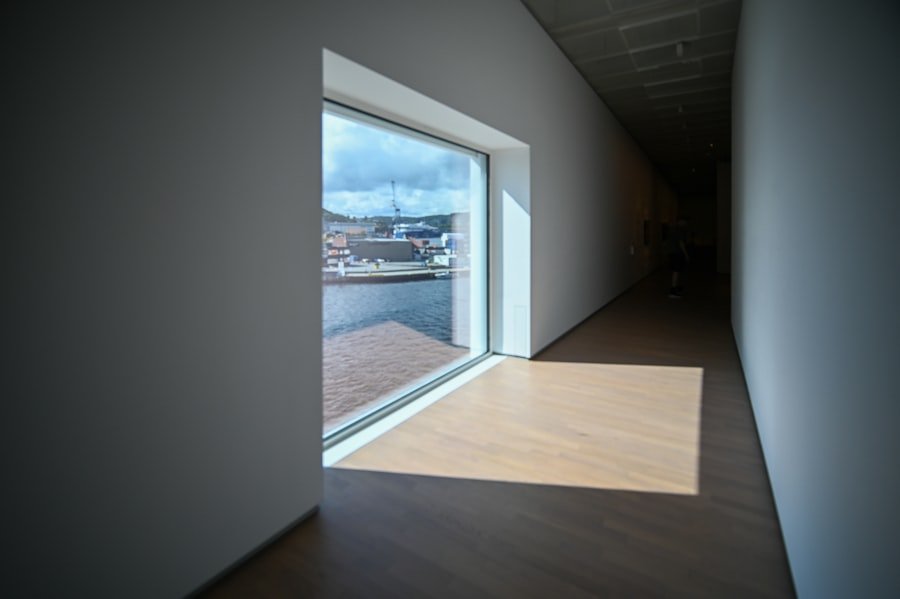

Using Norwegian Media (NRK, Podcasts) to Boost Your Professional Vocabulary
Norwegian media serves as a vibrant tapestry that reflects the culture, values, and contemporary issues of Norway. With a rich history and a commitment to quality journalism, the media landscape in Norway encompasses a variety of platforms, including television, radio, newspapers, and digital content. This diverse array of media not only informs the public but also plays a crucial role in shaping societal discourse.
For those learning the Norwegian language, engaging with these media outlets can be an invaluable resource, particularly for expanding professional vocabulary and understanding the nuances of the language in a real-world context. As learners delve into Norwegian media, they are presented with an opportunity to immerse themselves in the language while simultaneously gaining insights into the professional lexicon used across various fields. Whether one is interested in business, technology, or the arts, Norwegian media offers a wealth of information that can enhance both language skills and professional knowledge.
By exploring these resources, learners can develop a more nuanced understanding of the language, making it easier to communicate effectively in their respective industries. Speak Norwegian Confidently. Enroll at NLS Norwegian Language School.
Table of Contents
ToggleSummary
- Norwegian media offers a unique opportunity to immerse oneself in the language and culture of Norway.
- NRK, the Norwegian Broadcasting Corporation, is a key player in the country’s media landscape, providing a wide range of content in Norwegian.
- Podcasts in Norwegian are a valuable resource for language learners, offering diverse topics and real-life conversations.
- Using Norwegian media can help professionals expand their vocabulary in specific fields such as business, technology, or healthcare.
- Incorporating Norwegian media into daily routines, such as listening to podcasts during commutes, can be an effective strategy for language learning.
Understanding NRK (Norwegian Broadcasting Corporation)
The Norwegian Broadcasting Corporation, known as NRK, is the national public broadcaster of Norway and serves as a cornerstone of the country’s media landscape. Established in 1933, NRK has evolved into a multifaceted organisation that provides a wide range of programming across television, radio, and online platforms. Its commitment to public service broadcasting ensures that it delivers content that is informative, educational, and entertaining.
For language learners, NRK is an essential resource for accessing high-quality content in Norwegian. NRK’s programming includes news broadcasts, documentaries, cultural shows, and children’s programming, all of which are produced with a focus on linguistic accuracy and cultural relevance. By engaging with NRK’s offerings, learners can not only improve their listening and comprehension skills but also familiarise themselves with the specific vocabulary used in various professional contexts.
The broadcaster’s emphasis on current affairs and societal issues also provides learners with the opportunity to expand their understanding of the language as it is used in everyday conversations and professional discussions.
Exploring Podcasts in Norwegian

Podcasts have surged in popularity over recent years, and Norway is no exception to this trend. With a plethora of podcasts available in Norwegian, learners have access to a diverse range of topics and formats that cater to different interests and professional fields. From interviews with industry experts to discussions on current events and cultural phenomena, Norwegian podcasts offer an engaging way to enhance language skills while staying informed about relevant issues.
Listening to podcasts allows learners to hear authentic spoken Norwegian in various accents and dialects, which can significantly improve their listening comprehension. Additionally, many podcasts feature specialised vocabulary related to specific industries or topics, making them an excellent tool for those looking to expand their professional lexicon. By incorporating podcasts into their language learning routine, individuals can create a dynamic learning experience that complements traditional study methods.
Benefits of Using Norwegian Media for Professional Vocabulary
Engaging with Norwegian media provides numerous benefits for learners seeking to enhance their professional vocabulary. Firstly, exposure to authentic language use in context allows learners to see how words and phrases are employed in real-life situations. This contextual understanding is crucial for mastering vocabulary, as it helps learners grasp not only the meanings of words but also their connotations and appropriate usage.
Moreover, Norwegian media often features discussions on industry-specific topics that are relevant to various professions. By following these discussions, learners can acquire terminology that is directly applicable to their fields of interest. This targeted approach to vocabulary building ensures that learners are not only expanding their language skills but also gaining insights into industry trends and practices.
As a result, they become better equipped to engage in professional conversations and contribute meaningfully within their chosen fields.
Strategies for Effective Vocabulary Building
To maximise the benefits of using Norwegian media for vocabulary building, learners should adopt effective strategies that facilitate retention and application of new words and phrases. One such strategy is active listening, which involves paying close attention to how words are pronounced and used in context. Taking notes while listening to podcasts or watching NRK programmes can help reinforce learning by allowing learners to revisit key vocabulary later.
Another effective strategy is to create thematic vocabulary lists based on specific topics or industries. By categorising words according to their relevance, learners can focus on mastering terminology that is most applicable to their professional goals. Additionally, incorporating these words into daily conversations or writing exercises can further solidify understanding and usage.
Engaging with peers or language partners can also provide opportunities for practice and feedback, enhancing the overall learning experience.
Incorporating Norwegian Media into Daily Routine

Integrating Norwegian media into one’s daily routine can significantly enhance language learning efforts. Setting aside dedicated time each day for listening to podcasts or watching NRK programmes can create a consistent learning habit that fosters gradual improvement. Whether during commutes, while exercising, or during breaks at work, these moments can be transformed into valuable opportunities for language exposure.
Furthermore, learners can diversify their media consumption by exploring different genres and formats. For instance, alternating between news broadcasts, cultural documentaries, and entertainment shows can provide a well-rounded understanding of the language while keeping the learning process engaging. By making Norwegian media a regular part of their lives, learners can cultivate a deeper connection with the language and its cultural context.
Finding Relevant Content for Your Professional Field
To maximise the impact of Norwegian media on professional vocabulary acquisition, it is essential for learners to seek out content that aligns with their specific fields of interest. Many media outlets offer specialised programming that caters to various industries, from technology and finance to healthcare and education. By identifying these resources, learners can focus their efforts on acquiring terminology that is directly relevant to their careers.
Utilising search engines and social media platforms can aid in discovering niche podcasts or articles that address specific professional topics. Additionally, networking with fellow learners or professionals in Norway can provide valuable recommendations for content that may not be widely known but is highly relevant. By curating a personalised selection of media resources, learners can ensure that their vocabulary building efforts are both targeted and effective.
Utilising NRK and Podcasts for Language Immersion
Language immersion is a powerful technique for acquiring new vocabulary and improving overall fluency. By immersing oneself in Norwegian media such as NRK broadcasts and podcasts, learners can create an environment where they are constantly exposed to the language. This continuous exposure helps reinforce learning by allowing individuals to encounter new words and phrases repeatedly in different contexts.
In addition to passive listening or viewing, active engagement with the content can further enhance immersion. For example, discussing episodes with peers or summarising key points after listening can encourage deeper processing of the material. Furthermore, learners can challenge themselves by attempting to replicate discussions or presentations they have heard in order to practice using new vocabulary in context.
Tips for Retaining and Applying New Vocabulary
Retaining new vocabulary requires intentional effort and practice. One effective method is spaced repetition, which involves revisiting vocabulary at increasing intervals over time. This technique helps reinforce memory retention by ensuring that words are encountered multiple times before they fade from memory.
Learners can utilise flashcards or digital apps designed for spaced repetition to facilitate this process. Additionally, applying new vocabulary in practical situations is crucial for solidifying understanding. Engaging in conversations with native speakers or participating in language exchange programmes can provide opportunities for real-world application of newly acquired terms.
Writing exercises such as journaling or composing professional emails in Norwegian can also help reinforce vocabulary usage while enhancing overall writing skills.
Networking and Collaboration Opportunities through Norwegian Media
Engaging with Norwegian media not only aids in language acquisition but also opens doors for networking and collaboration within professional circles. Many podcasts feature interviews with industry leaders or discussions on current trends that can provide valuable insights into specific fields. By following these discussions, learners can identify potential contacts or collaborators who share similar interests.
Furthermore, participating in online forums or social media groups centred around Norwegian media can facilitate connections with like-minded individuals who are also interested in language learning or professional development. These networks can lead to collaborative projects or opportunities for mentorship that enrich both language skills and professional growth.
Maximising the Impact of Norwegian Media on Professional Vocabulary
In conclusion, engaging with Norwegian media offers a wealth of opportunities for enhancing professional vocabulary while deepening cultural understanding. By utilising resources such as NRK broadcasts and podcasts, learners can immerse themselves in authentic language use while acquiring industry-specific terminology relevant to their careers. Implementing effective strategies for vocabulary building and incorporating media into daily routines further amplifies the benefits of this approach.
As learners navigate the rich landscape of Norwegian media, they not only improve their language skills but also position themselves for success within their chosen fields. By actively seeking out relevant content and engaging with peers through networking opportunities, individuals can maximise the impact of their language learning journey. Ultimately, embracing Norwegian media as a tool for professional development will lead to greater fluency and confidence in navigating the complexities of the language in a professional context.
Enroll in Norwegian Classes at NLS Norwegian Language School
If you want to learn Norwegian, you can register for classes here. We look forward to hearing from you and helping you become fluent in Norwegian.





